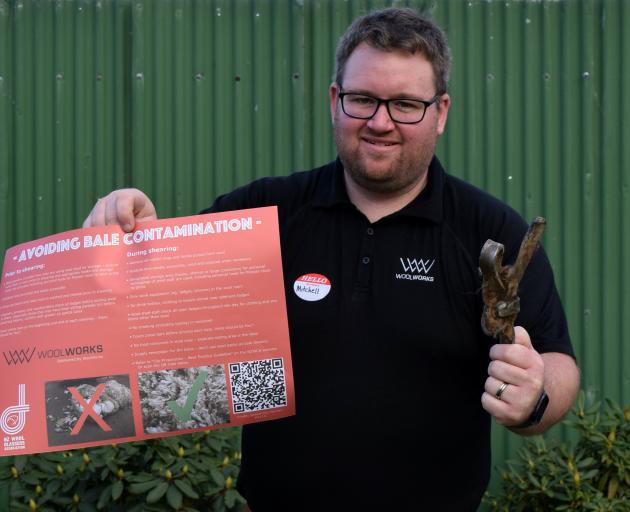
"Please, please try and help us out by doing the best you can to ensure nothing gets in bales that isn’t meant to be there," Woolworks New Zealand South Island innovation manager Mitchell Young, of Timaru, said.
He spoke about the issue at the New Zealand Wool Classers Association professional development day in Mosgiel last week.
More than 100 million kg of greasy wool gets processed each year at Woolworks’ three sites — Awatoto and Clive, in Hawke’s Bay, and Washdyke, in Timaru.
Woolworks sorts, washes, dries, packs and exports about 80% of New Zealand’s wool clip on behalf of its clients.
The wool is exported to more than 40 countries.
Many greasy bales taken to Woolworks for processing contained items other than wool, which was a "really big problem", Mr Young said.
"Inside the packs should be 100% pure wool and nothing else," he said.
Car keys, clothing, docking rings, glass, a live shotgun shell, metal press bars, rats, a torch, vapes and cigarette packets had all been found.
Press bars could severely damage wool scouring machinery, stop production and be costly to repair.
Clothing processed with wool had a major impact on the final product exported.
The cotton from a red T-shirt could disperse across tonnes of white wool and contaminate up to 30 bales.
"Then we have a real problem because they are trying to make a pure white product and it has flecks of red all through it," he said.
Woolworks staff were paid a bonus for every item found.
Between July 2023 and March 2024, more than 2650 items were found contaminating bales at Woolworks sites.
Woolworks paid nearly $125,000 in rewards to staff for finding contamination — nearly $100,00 of that was to staff in the South Island.
If items made it through the scourer and into bales for export, the cost to the industry was much higher than $125,000, he said.
"If we don’t find it and it ends ups overseas, that is where it causes major reputational issues."
Metal detectors were at the sites to try to stop items entering the Woolworks machinery.
The association made a sign to install in shearing sheds, including a checklist of simple ways to avoid bale contamination.
That included counting the press bars at the beginning and end of each shearing, removing all rubber rings from wool, no smoking or vaping in the woolshed and avoiding consumption of food in areas where wool was handled.
The signs would be given to wool classers, merchants and brokers to pass on to clients.
"Get this up in your shed — the only way we are going to change this is by educating people," Mr Young said.















